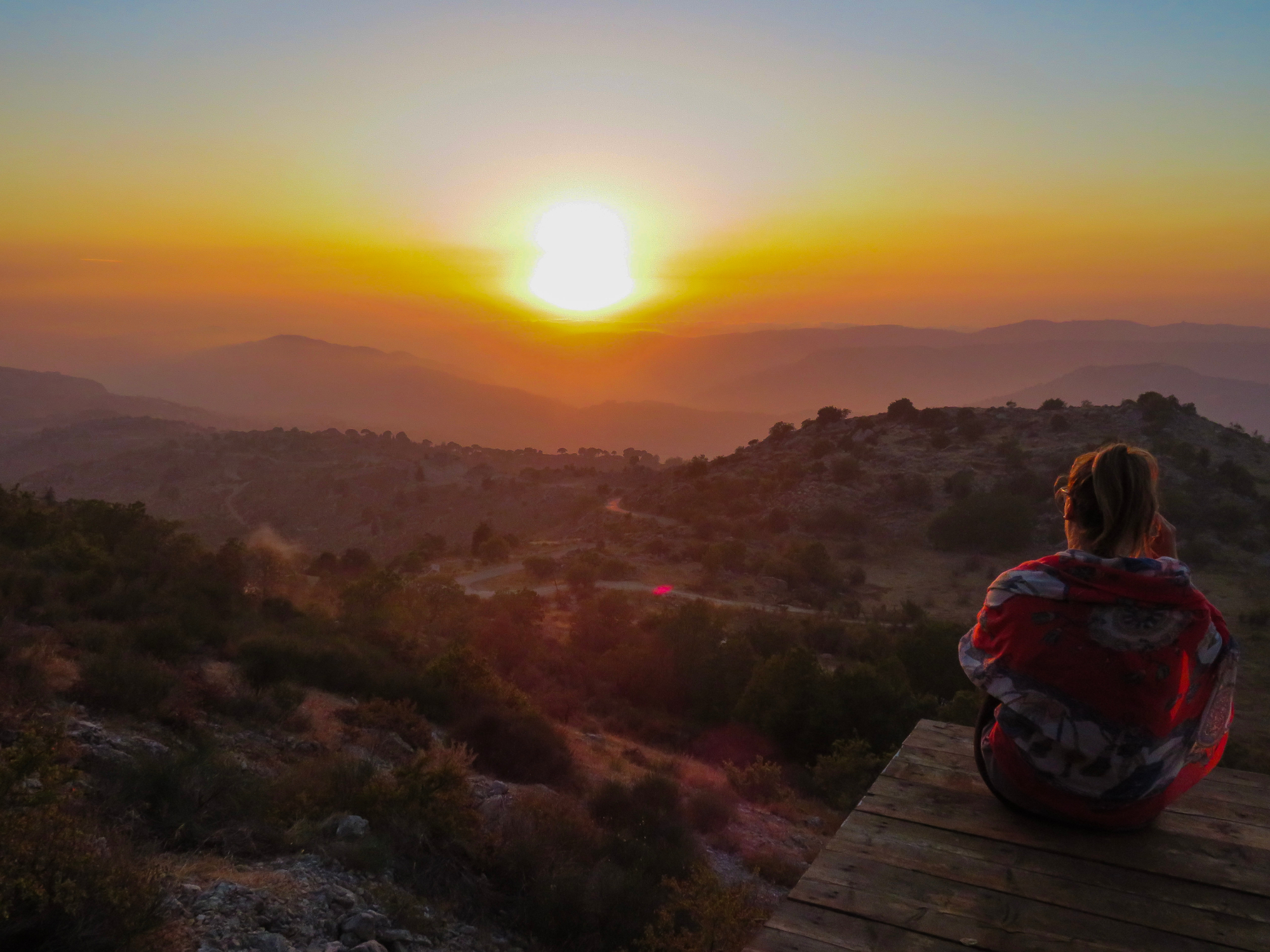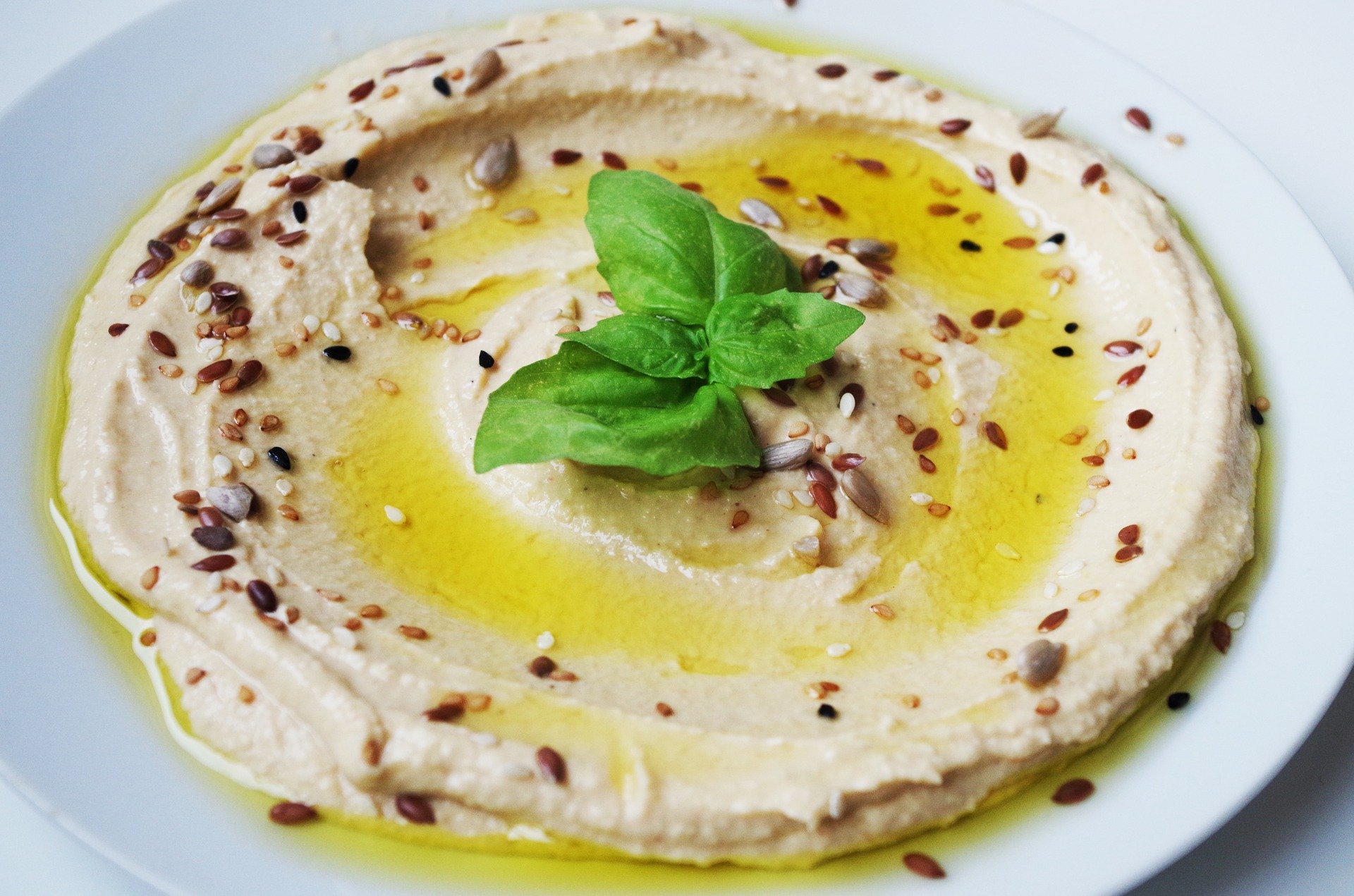The experienced travel writers at World Words don’t just sit at their desk and write – they get out and travel the world too. At least, they do when there isn’t a global coronavirus pandemic. Whether busy researching stories or just having fun, they’ve ventured to all four corners of the globe, from The Azores to Alaska, Australia to Andorra.
(And those are just the As – there are plenty more where they came from).
In the Our Travels blog series, we share a taste of some of the places we’ve recently visited, and find out exactly what it is we loved about them. In this month’s blog, we will hear from travel writer Jennifer, who recently travelled to Lebanon and was astonished by the beauty of the country and its people. Scroll down to read about her trip…

Watching the sun set over the Al Shouf Cedar Nature Reserve, to the north of Jezzine.
Why I went to Lebanon
Like many people of a certain generation, I grew up with images of Lebanon’s civil war, from the smouldering Holiday Inn hotel to PLO fighters brandishing machine guns. While working at the BBC during the 2006 war, I interviewed Beirut citizens at the precise moment when the Israelis, with only a few hours warning, began to bomb the city. I remember vowing then that, one day, I would travel to Lebanon and see it in better times.
My highlight of the trip
I first began to see why Lebanon is so special on a visit to Jezzine. This mountain-ringed town was a significant place during Lebanon’s civil war, occupied by the South Lebanon Army, a Christian militia who sided with Israel.
Today, things couldn’t be more different. The town, which is surrounded by pine forests and tiny Maronite villages where locals grow grapes, keep bees and play backgammon in the evening sun, is a centre for nature tourism. I explored the town, hiking to villages and through olive groves. I discovered a tiny boutique vineyard and spent an hour with the owner tasting incredible wines while watching the sunset. It’s an extraordinarily beautiful place.
What else I love about Lebanon
The politics and history of Lebanon are very complex. This is precisely why I like it. There’s so much to think about and learn during a visit, so you are never bored. Lebanese people are also extremely friendly and open-minded.
The countryside is a real attraction. I spent one weekend camping among the cedar forests and another at Jabal Moussa, a UNESCO Biosphere Reserve, where I stood alone at the bottom of a valley beside of a turquoise lake.
Another big draw is Lebanese food. The country’s capital Beirut is a city with a youthful energy, full of great bars, restaurants and other foodie joints. I loved the evening I spent with some friends at the Beirut Restaurant Festival, where we tried all kinds of different things to eat. They were all out of this world. Every day of my trip, I returned home with a haul of delicious products from local farmers and producers, such as cedar honey, olive oil and wine.

Hummus, made with blended chickpeas and sesame tahini, is a vital part of most Lebanese meals.
Why you should go
Foodies are guaranteed the time of their lives, while nature lovers will adore all of Lebanon’s parks and biosphere reserves. Go hiking at harvest time, when the countryside is full of locals picking apples and sun-drying sumac.
Lebanon is also a great place for history fans. There are the ancient ruins of Baalbek and Tyre, which are not only incredible but also less crowded than similar places in Greece. Beirut itself is built on Ancient Roman ruins, which keep being discovered every time there is any building work going on.
But most of all, I think it’s most important to visit Lebanon to dispel negative myths associated with the country. This is one of the most religiously diverse countries in the world, where Muslims and Christians live side by side along with a population of Druze. And it is just as safe – or as unsafe – as most other places in the world today.
How you can visit
Middle East Airlines operates regular flights to Beirut, as do other carriers including British Airways, KLM and Air France. Once you’ve arrived in Beirut, the easiest way to get around is by taxi. Most of them offer ‘service’, where you share your car with other people going in the same direction. If you want to explore outside Beirut, rent a car and a driver for the day from a local tour company. For affordable sightseeing trips by bus, try Living-Lebanon.
Want to read more great Middle Eastern travel content, or see some of the other work by writers like Jennifer? Then head over to our projects page. You can also follow us on Twitter to keep up with the latest travel news.
– Article and photography by Jennifer Hudson.
